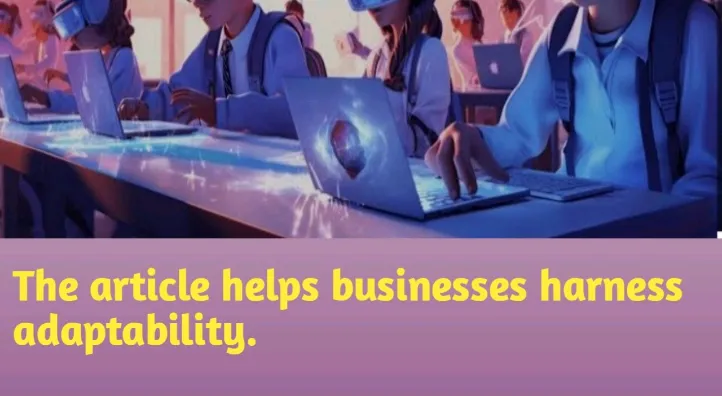How does the metaverse affect businesses?
Virtual Commerce: Businesses can establish virtual storefronts and sell digital and physical products within the metaverse. Virtual real estate and items, as well as unique digital experiences, can become commodities.
Advertising and Marketing: Advertising in the metaverse can be more immersive and interactive, requiring new marketing strategies. Businesses may need to create virtual brand experiences and engage with users in novel ways. Remote Work and Collaboration: The metaverse can reshape the way businesses operate. Remote work can become more immersive and productive, with teams collaborating in virtual offices, reducing the need for physical office space.
Training and Education: Businesses can leverage the metaverse for employee training and development, creating realistic simulations and interactive learning environments.
Customer Engagement: Improved virtual interactions can enhance customer service. Virtual assistants, chatbots, and AI-driven customer support can provide more personalised and efficient assistance.
Conferences and Events: Virtual conferences, trade shows, and events within the metaverse can reduce the need for physical attendance, saving costs and expanding reach.
Supply Chain and Logistics: Virtual environments can be used to optimise supply chain management, tracking goods and resources in real-time.
Data and Analytics: The metaverse can generate vast amounts of data, providing businesses with valuable insights into user behaviour and preferences. Analytics in the metaverse can drive decision-making and product development.
Monetization of Virtual Assets: Businesses can monetize virtual assets, such as virtual real estate, in-game items, and digital art. This can create new revenue streams and economic models.
Virtual Services: Service-based businesses can offer consultations, therapy, fitness classes, and more within the metaverse, expanding their reach beyond physical boundaries.
Blockchain and NFT Integration: Businesses can use blockchain technology and non-fungible tokens (NFTs) to establish ownership of digital assets, creating new opportunities for art, entertainment, and collectibles.
Emerging Industries: New industries and professions can emerge in the metaverse, such as virtual architects, virtual real estate developers, and metaverse event planners.
Global Reach: The metaverse can make it easier for businesses to reach a global audience as geographic constraints are reduced, potentially leading to more diverse customer bases.
It's also important that businesses address various challenges in the metaverse, including privacy concerns, cybersecurity risks, and evolving regulatory frameworks.
It's high time we start adapting to the changing dynamics.
- Atul Tyagi
© Solutions in terms of clarity for life.
#metaverse
Advertising and Marketing: Advertising in the metaverse can be more immersive and interactive, requiring new marketing strategies. Businesses may need to create virtual brand experiences and engage with users in novel ways. Remote Work and Collaboration: The metaverse can reshape the way businesses operate. Remote work can become more immersive and productive, with teams collaborating in virtual offices, reducing the need for physical office space.
Training and Education: Businesses can leverage the metaverse for employee training and development, creating realistic simulations and interactive learning environments.
Customer Engagement: Improved virtual interactions can enhance customer service. Virtual assistants, chatbots, and AI-driven customer support can provide more personalised and efficient assistance.
Conferences and Events: Virtual conferences, trade shows, and events within the metaverse can reduce the need for physical attendance, saving costs and expanding reach.
Supply Chain and Logistics: Virtual environments can be used to optimise supply chain management, tracking goods and resources in real-time.
Data and Analytics: The metaverse can generate vast amounts of data, providing businesses with valuable insights into user behaviour and preferences. Analytics in the metaverse can drive decision-making and product development.
Monetization of Virtual Assets: Businesses can monetize virtual assets, such as virtual real estate, in-game items, and digital art. This can create new revenue streams and economic models.
Virtual Services: Service-based businesses can offer consultations, therapy, fitness classes, and more within the metaverse, expanding their reach beyond physical boundaries.
Blockchain and NFT Integration: Businesses can use blockchain technology and non-fungible tokens (NFTs) to establish ownership of digital assets, creating new opportunities for art, entertainment, and collectibles.
Emerging Industries: New industries and professions can emerge in the metaverse, such as virtual architects, virtual real estate developers, and metaverse event planners.
Global Reach: The metaverse can make it easier for businesses to reach a global audience as geographic constraints are reduced, potentially leading to more diverse customer bases.
It's also important that businesses address various challenges in the metaverse, including privacy concerns, cybersecurity risks, and evolving regulatory frameworks.
It's high time we start adapting to the changing dynamics.
- Atul Tyagi
© Solutions in terms of clarity for life.
#metaverse
Related Stories










